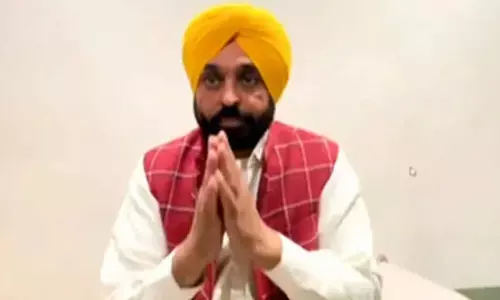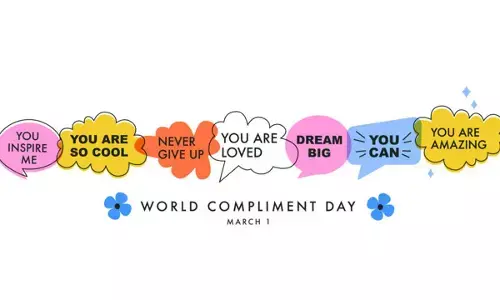MyVoice: Views of our readers 19th October 2023

Views of our readers
SC lobs critical issue into parliament purview
The Supreme Court’s five judge Constitution Bench delivered its verdict opposing same gender marriage, which is heartily welcome in all proportions. But the final decision is thrown on the shoulders of Parliament which is also expected to follow in line with SC. Going against nature is disastrous. Dharma Sastras never accept unethical and immoral activities. This copulated practice is not only unlawful but also much against natural human behaviour. Why should not we bring it under SUAPA [Special Unlawful Activities (Prevention) Act]. Secondly, adoption rights by unmarried couple. This term itself denotes awkward meaning. How can law permit such duo as couple? Marriage is a sacrosanct life time bondage with adjustments and understandings. It is not a contract with specific terms and conditions with termination clauses. Divorce cases were not existing in the years of yore. It augurs well to confirm by SC with 3-2 verdict “No adoption rights for queer people”. Judiciary or law-making authority can vitiate law, but not scripturally enshrined dharma.
N Ramalakshmi, Secunderabad
***
Marriage is a union of two consenting partners. When the SC has decriminalized sexual orientation of consenting gay couples in 2018 and the fact that marriages between couples of the same sex has been in vogue since antiquity despite the opposition towards it from religious heads, the verdict of SC comes as a bit of a surprise. Yes, it’s agreed that there are a host of complex web of social issues like inheritance laws, divorce & alimony issues & the involvement of different marriage laws which has, perhaps, made & even forced the SC to throw the ball into the parliament court, but how far will a parliamentary committee be able to thrash out an amicable solution satisfying the aggrieved LGBTQ community and others is a question which remains. In a diverse and vast nation with an enormous personal, social & cultural, orientation of its masses, framing a law especially on sensitive and delicate issues isnt at all an easy exercise. Marriage is one such. The government will have to tread a cautious path after sensitizing the public at large.
N R Raghuram Hyderabad
***
The 5-Judge bench of the Supreme Court unanimously ruling out same-sex marriage on the ground that the right to marry was not a fundamental right, though a remarkable statement based on traditional family values, yet it is clearly seen as diluting the right to privacy. Therefore, this comes as a big disappointment to those with alternative sexual orientation. Further the order said that the power to regulate it in accordance with societal conditions rests with legislature gives a glimmer of hope to queer people to have a right to form relationships because the constitution recognises a role in society for everyone. Overall, the court in the case of Supriyo Chakraborthy unequivocally recognising the right of union and partnership of queer couples and asking the centre to form a committee to decide rights and entitlements of persons in queer union has ensured that no citizen of India should feel or suffer on the basis of their sexual orientation because they are also part and parcel of the social life.
K R Srinivasan, Secunderabad
Pick your choice and ‘pay the price’
Making a single white cotton T-shirt can take up to 2,700 litres of water. That is the amount of water a person drinks over 3 years. We were shocked when we first learnt this fact. We looked at our wardrobe and wondered, how much harm had our favorite garments caused to reach our shelf? As there is hardly any credible information available on how the product was made, we could only take a guess. Fast fashion is growing at an alarming rate, encouraging us to buy newer clothes without much thought. Fast fashion is paving the way for countless environmental concerns. The plastic waste, water pollution and towering landfills cannot be ignored anymore. While brands may claim that they are ‘sustainable’, ‘eco-friendly’, in the absence of verifiable information, how are we to know better? The government has to introduce a unified sustainability tag for all garments. If the government assigns a sustainability rating based on how a garment was made, citizens too would be encouraged to read that tag and make an informed choice and take clothes according to the price.
C K Subramaniam, Mumbai








